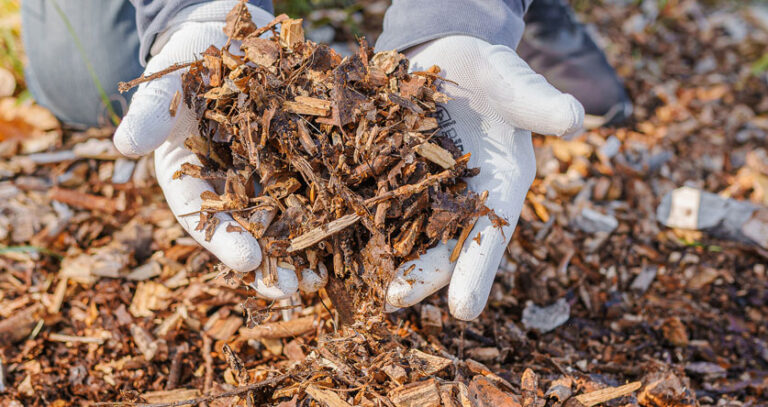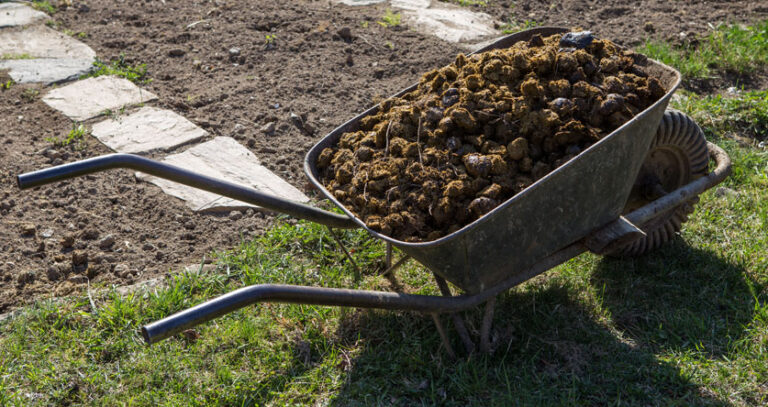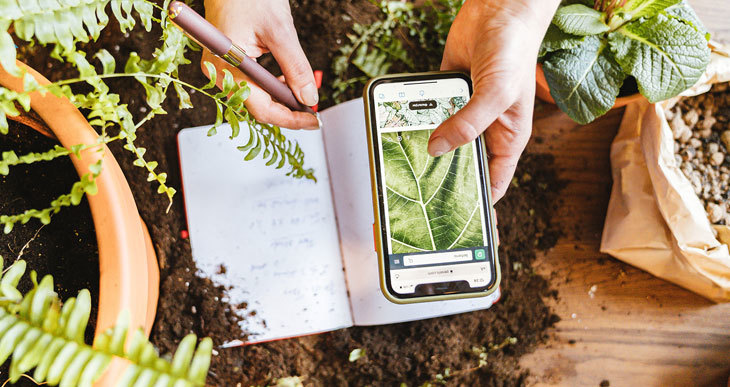Can I Compost Ashes (The Truth about Ashes in Compost)
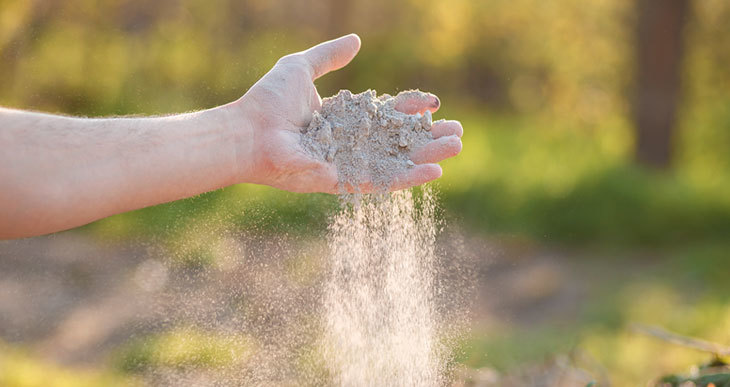
Understanding if and how you should use ashes in compost can be confusing.
For example, you hear a lot of gardeners using ashes as fertilizer in the soil. So should you just throw it directly onto earth, or is it better to put it in compost?
And if you regularly use a fireplace or stove, you probably accumulate a lot of this waste material.
So what’s the best way to deal with it?
In this article, I’ll explain the ideal way to include ashes in your home composting and how to avoid the possible side effects of using ash for the garden.
Can I compost ashes?
Ashes are an excellent addition to compost because they are high in potassium and other micronutrients. It helps make compost more versatile for soil amendment. Ashes are also very alkaline and help modify the pH values of compost. But not all types of ashes are ideal for composting.
Ashes are known to be a good source of potassium (they contain up to 10% potash).
Potassium is needed by plants to create chlorophyll, the amazing substance that makes photosynthesis possible. It can also help make plants more disease-resistant.
Ash is also high in calcium (up to 25%). Calcium carbonate is a well-known limining material. In other words, it increases alkalinity levels.
On top of that, ashes contain many other valuable micronutrients, such as magnesium, phosphorus, iron, boron, zinc, and manganese.
Compost made with ashes will have an increased spectrum of nutrients. The larger the variety of organic matter you put in your compost, the better it can replenish nutrients in the soil.
One of the beneficial side effects of using ash in compost is that it helps neutralize odors.
You should also know that ashes can strongly affect acidity levels. In addition, they contain soluble salts, which can be potentially harmful to plants. For these reasons, it can be more beneficial to put ashes into a compost bin rather than spreading them directly in the garden.
But a word of warning…
You need to consider the origin of your ashes to ensure they don’t harm your compost and gardening efforts.
Are ashes bad for compost?
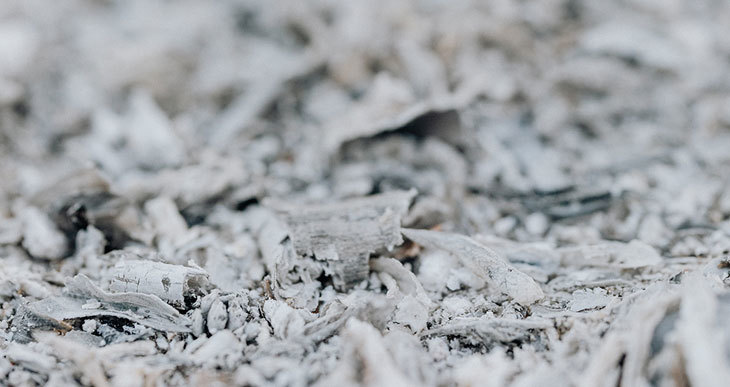
Ashes are generally considered good for composting. This is because not only are ashes high in potassium, but they also contain a good amount of calcium. This is a common liming material for correcting acidity. But it can be confusing to know the correct type of ashes to use and how to use them.
As a general rule, you might be better off composting ashes than adding them to the soil.
There are a couple of reasons for this.
The soluble salts contained in ashes are possibly harmful to some plants. When you put ashes into compost, these salts are slowly washed away. Heavy rainfall and watering encourage the salts to leach out.
Ashes are also very alkaline. So adding them to soil lowers acidity levels. This is good if you know your soil is overly acidic, but avoid overdoing things. However, compost is quite acidic, especially in the early stages of decomposition. So adding ashes can therefore help balance pH levels in your compost.
One crucial thing to keep in mind is where do your ashes come from?
There are a few situations where you don’t want to use ashes at all…
Can I compost charcoal ashes?
The term “charcoal” refers to the manmade type of coal made from burning wood. Ash produced from charcoal results in the correct type of ashes for adding to compost.
It’s essential to understand the type of ashes you use for composting.
The powdery residue that remains after a wood fire in stoves and fireplaces is good to compost.
Keep in mind that the type of wood you burn slightly impacts the level of beneficial potassium contained in the ashes. For example, young wood will result in higher potassium levels than old-aged wood.
You should also make sure the wood used in the fire is not treated wood. Chemically treated timber could leave trace residues which might be harmful if put in compost.
Can you put coal ashes in compost?
Natural coal is a mined mineral that includes heavy metals, chemicals, and sulfur traces. These substances are potentially toxic for plants. So ashes from mined raw coal should not be composted.
As you can see, it’s helpful to understand the source of your ashes if you want to avoid adverse effects on your compost biology and plant health.
Can I compost fireplace ashes?
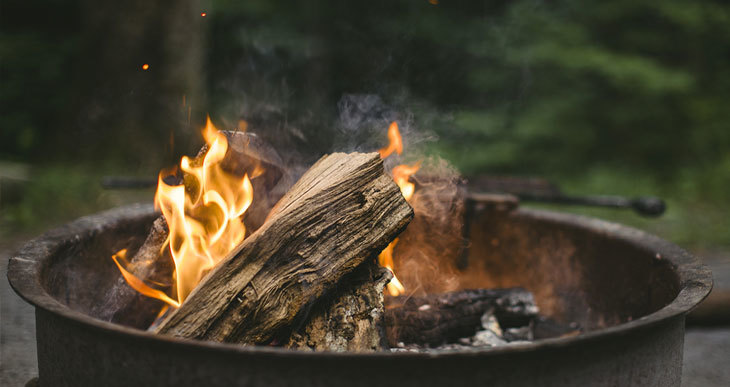
Fireplace ashes can be composted if the fuel used in the fire is wood. Do not use fireplace ashes if you use natural coal or artificial firelogs. Also, avoid ashes from burnt, treated timber.
Fireplace ashes generally refer to the powdery substance remaining after a wood fire. This is safe to use if you know the wood is from a natural, untreated source. If the wood was painted or stained, then avoid using the ashes.
Can I put wood ashes in compost?
Wood ashes are safe to use in compost. This is the best type of ash to add to a compost bin. Wood from young trees will give you the best potassium content
Can I compost paper ashes?
Paper is generally made from wood pulp and contains cellulose. Some paper uses cotton, but both these materials are organic and can be safely used after burning.
Remember that the paper-making process reduces the amount of beneficial nutrients in the paper, adding less goodness to your compost heap.
Can you compost ash from BBQ?
Avoid using ashes leftover from a barbecue. It can be contaminated with fats from cooked meat. Also, if the barbecue was started with chemical firelighters, the ashes could be contaminated with harmful chemicals.
Even if you used natural wood charcoal as fuel for your barbecue, the resulting ashes could still end up with contaminants. If you add these to compost, they will harm composting microbes.
Is ash brown or green compost
Ash is relatively high in carbon. This makes it a brown composting material. The calcium carbonate content of ashes also makes it strongly alkaline, so you need to be aware of its effect on your compost heap.
The C: N ratio of ashes is 25:1. In other words, it is 25% organic carbon.
Thanks to the calcium carbonate content, it is more alkaline in nature.
Do ashes make compost acidic or alkaline?
Wood ashes are alkaline in nature. Ashes have a liming effect which means they help neutralize acidity. When added to compost, they make it more alkaline.
Wood ash is very alkaline, with a pH level between 9 and 11. Adding them to compost helps neutralize acidity levels. Adding them to fresh composting materials makes sense because compost usually starts out on the acidic side.
Remember that pH measures the acidity or alkalinity of a substance. A pH of around 7 is considered neutral.
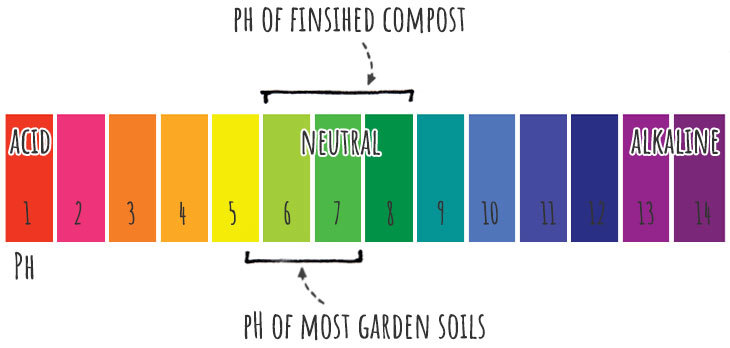
The resulting ash compost can be good for very acidic soils. Use it as mulch around lime-loving plants. But avoid using it on acid-loving fruit bushes like blueberries or raspberries and flowering plants like rhododendrons.
The most important plant nutrients are most readily available in somewhat neutral soil (pH of 7). However, some micronutrients become more freely available when the soil is slightly acidic (pH between 5,5 and 6).
Adding ash compost to soil can be an excellent way to achieve an optimal pH range for plants between 6.2 and 7.3
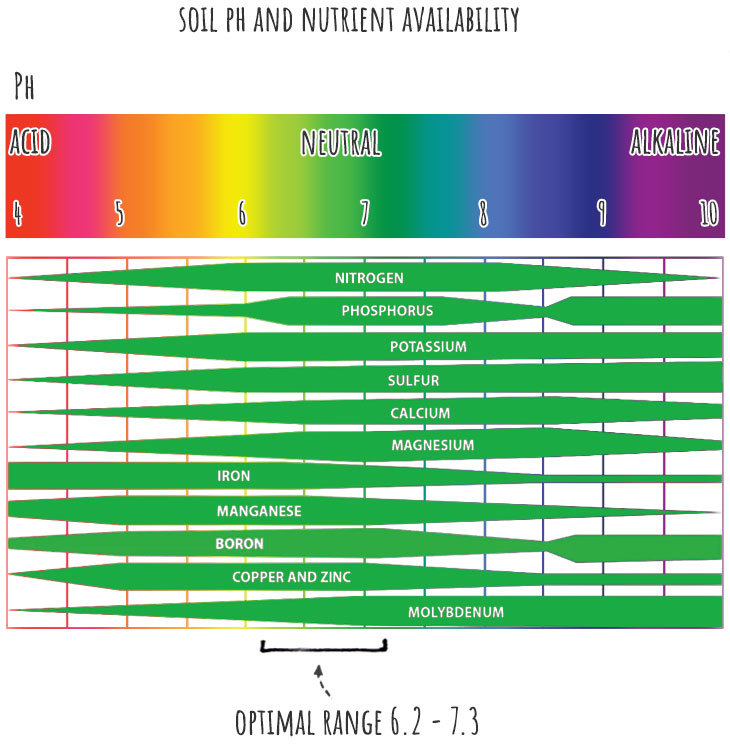
It’s always a good idea to test your soil pH beforehand so you know the starting point of your soil.
A soil test kit like this one (Amazon) gives quick results, but if you want a more lasting solution, you can get some excellent pH and moisture meters like this one.
How to compost ashes
Add small amounts of ash to your compost heap. As a general rule, sprinkle a thin layer of ash every 12 to 18 inches of organic matter. Avoid using too much ash at a time because of its high alkalinity.
You should try to remove any large unconsumed pieces of wood using a garden sieve – here’s an example on Amazon.
How much ash should I put in my compost?
You only need to add a thin layer of wood ash for every foot or so of organic materials.
Some nutrients can get washed out if your compost isn’t covered and gets soaked by rainwater. This includes the unwanted salts, but also some of the beneficial potassium. To counteract this, it’s a good idea to add several layers of ash as you build up your compost heap.
Can you put too much ash in compost?
It is possible to use too much ash when composting, so avoid excessive ash doses. Considering the high alkalinity of ash, you should limit the amount of wood ash to thin layers.
Too much potash can unbalance the pH levels of compost. Composting microbes and fungi work most efficiently at a neutral range of pH values.
Avoid adding large amounts of ash, especially to more mature compost, which is already more alkaline than fresh compost.




